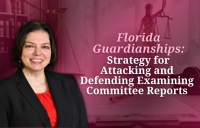My firm practices asset protection, catering to professionals, entrepreneurs and investors who seek both domestic and international asset protection strategies. In this article, I will discuss the technology underlying virtual digital currencies and how it might play a role in asset protection.
What is cryptocurrency?
Virtual digital currencies (or “cryptocurrencies”) operate on decentralized databases called blockchains. Blockchains function as publicly distributed ledgers, verifying and permanently recording asset transfer transactions between buyers and sellers without the need for a trusted third party. These technological breakthroughs are enabling the new, digitized economy.
Blockchain introduced technology that solved a long-standing computer science problem, known as the “double-spend” problem, eliminating the potential for an unscrupulous or unknowing buyer to spend the same money more than once. A “trustless” ledger system employs public key cryptography to ensure transaction inputs are not duplicated. There is no need for third-party intermediaries. Transactions are grouped and recorded in blocks, then linked to the last block in the chain. A system of consensus and cryptography validate each of the transactions.
In the Bitcoin protocol, transactions are validated by “miners” who receive Bitcoins as a reward (or premium) for their processing efforts. Once a sufficient consensus of miners has validated the cryptographic hash of a transaction, the information is recorded in a “block.” Successive blocks of transaction data are built upon previous blocks to form a chain – hence the name “blockchain.” The process of recording transactions in interconnected blocks creates an immutable, time-stamped ledger that is not subject to manipulation by any person, company or government.
With the absence of a middleman and by existing on a distributed ledger in cyberspace, digital currencies are effectively borderless and can represent stores of value in all parts of the globe. Bitcoin, the most recognized digital currency, is not controlled by any centralized government entity or organization, but instead by willing participants (generally the miners) that build and maintain the chain.
Blockchain transactions are semi-anonymous – or “pseudonymous.” Each transfer of value on the ledger is publicly viewable, but parties to the transaction are known only by a string of numbers serving as a public key address. (Bitcoin transactions are publicly viewable in real time at www.blockchain.info.) Anonymous users manipulate ownership and transfer of Bitcoin with their private key, a separate string of numbers generally kept secret. This ability to engage in transactions pseudonymously (coupled with the absence of intermediaries) makes Bitcoin the currency of choice for gray and black market transactions. The infamous Silk Road website relied upon Bitcoin payments and, more recently, Bitcoin has become the preferred payment for cybercriminals, such as those engaged in the rising epidemic of cyber-ransom.





